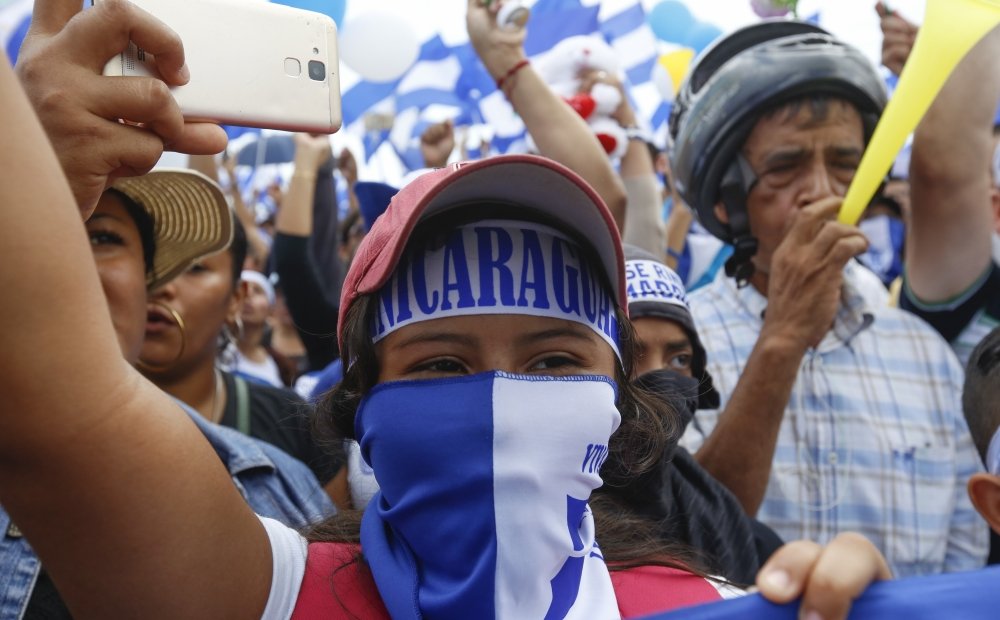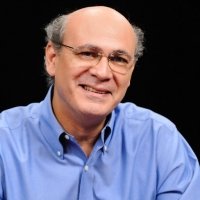The Crisis in Nicaragua: Is a Resolution in Sight?

Since April 2018, Nicaragua has been rocked by civic protest, an anti-government popular mobilization not seen since the revolutionary government itself seized power in 1979. Attacks on demonstrators by the police and paramilitary groups have left over 250 dead and over a thousand wounded. Initially sparked by the government's lackluster response to a fire in a nature reserve and then by proposed reforms to the social security system, the protests quickly burgeoned into a broader movement that includes the private sector, students, labor unions, and public intellectuals demanding the resignation of President Daniel Ortega and the calling of early elections. The Nicaraguan Catholic Church has attempted to broker a national dialogue, but the talks are currently suspended.
With Ortega refusing to leave office before the end of his current term in 2022, what are the prospects for a peaceful resolution of the current crisis? What will be the effect of deteriorating economic conditions on the prospects for dialogue? What role, if any, can the United States and other international actors play in the search for a political solution?
In this Ground Truth Briefing, experts analyzed the current situation and future scenarios for Nicaragua.
Selected Quotes
Cynthia Arnson
“Since last April, Nicaragua has been rocked by mass demonstrations against the government of President Daniel Ortega. This is really unlike anything since the Sandinistas first seized power in 1979. And, indeed, those of us who were alive and witnessed that event find that there are eerie parallels to that time: paving stones pulled up in the street to erect barricades, the same communities that resisted the dictatorship of Anastasio Somoza, now on the front lines against the Ortega government.”
“The violence has been astonishing. Just yesterday, pro-government paramilitaries attacked several priests, including the Cardinal of Nicaragua and the Papal Nuncio, inside a local church. The Nicaraguan police and paramilitary groups have opened fire on demonstrators, leaving a toll of close to 300 dead, most of them young people.”
Carlos Fernando Chamorro
“What is behind the National Dialogue is a national civic insurrection. It is a peaceful revolution against Daniel Ortega’s dictatorship. There is not a civil war in Nicaragua. There are several forms of pressure against the government, including massive demonstrations, barricades, road blockades, general strikes — demanding Ortega’s resignation, political reform, and free elections. But there are not two armies fighting in Nicaragua. There is only one armed group and this is the Nicaraguan police and the paramilitary forces.”
“Besides the extraordinary work that has been done by the Inter-American Commission on Human Rights that has documented the human rights violations in their report, I don’t see an appropriate reaction by the international community. And I’m not talking only about the U.S. or about the OAS, the United Nations, European Union. I think the crisis in Nicaragua demands a very strong, multilateral action to stop the massacre. I cannot understand how multilateral institutions like the Inter-American Development Bank and the World Bank continue to give money and loans to Ortega like business as usual, while in Nicaragua, there is a humanitarian crisis.”
“At the moment the government is provoking the opposition and the people and the situation to evolve into a civil war. That’s a major threat… The moment the opposition moves away from peaceful insurrection, from civic protest, I think the Nicaraguan future is lost.”
“The government has organized the paramilitary forces and that puts in question the role of the army. There will be a moment in which the army will have to decide either to continue being [an] accomplice of Ortega or to act and disarm the paramilitary forces.”
Juan Sebastián Chamorro
“The National Dialogue has been on and off for the last month and a half. But unfortunately, from the side of the government, they are basically trying to gain time… [by framing] the members of the Civic Alliance for Justice and Democracy as terrorists and as responsible for a soft coup d’état.”
“More than 200,000 people have lost their jobs already... [and] the economic growth is expected to be negative 6 percent by the end of the year if this conflict is not resolved. How can we resolve this conflict? I think pressure from the streets — general strikes, economic pressures, and also pressure in the international arena.”
“Under these circumstances, I would strongly oppose the possibility of the IMF signing an agreement with the government in the middle of a social/political crisis because those [IMF] programs are usually combined with fresh funds. My concern would be these fresh funds would be used to oppress the population of Nicaragua.”
Daisy George West
“I totally agree with Carlos Fernando—this is a civil insurrection. And this is not only the effect of the problem that they made a reform, a unilateral reform, for the social security issue. This is something that is ongoing from the second time that Ortega came to government. He’s been changing, he’s been reforming all the laws in Nicaragua to make sure that he will be forever [in power].”
“The worst thing is that the… official media is denying everything and putting information that shows that the bad guys are the ones [committing] crimes and bringing other actors to do all this violence. They want to point to the Alliance group. This is very sad to see how they are manipulating information to harm more of the people… I think it’s time now that the international community step up and come and give us [a] hand.”
“We need to have new institutions, new people, and we need to review all (of the electoral) system that he [Ortega] imposed… That’s one of the reasons why the dialogue is not improving because they don’t want to sit down and talk about this progress.”
Amb. Todd Robinson
“It’s really important that this remain a Nicaraguan-led process. It’s really important that at the end of the day the two Nicaraguan sides be seen as the leaders in how this is going to end. I agree that the international community has a lot to do, but at the end of the day if it’s not Nicaraguans talking to Nicaraguans, it’s not going to work.”
“The U.S. government, as you all know, last week… announced financial sanctions under the Global Magnitsky Human Rights Accountability Act… We named three people that we know are directly involved in human rights abuses in Nicaragua… We want the regime to know that we are going to hold them accountable today and tomorrow for human rights abuses and corruption… We are going to continue to support the OAS’ actions; we’re going to continue to support the Inter-American Commission on Human Rights; we’re going to continue to support the National Dialogue.”
“This is a real chance for the private sector, for instance, to step up. I think they have a large opportunity here to add influence with the regime, to make their voices heard, and to push as hard as they can for the negotiation process, the electoral process, and change.”
Speakers


Moderator

Hosted By

Latin America Program
The Wilson Center’s prestigious Latin America Program provides non-partisan expertise to a broad community of decision makers in the United States and Latin America on critical policy issues facing the Hemisphere. The Program provides insightful and actionable research for policymakers, private sector leaders, journalists, and public intellectuals in the United States and Latin America. To bridge the gap between scholarship and policy action, it fosters new inquiry, sponsors high-level public and private meetings among multiple stakeholders, and explores policy options to improve outcomes for citizens throughout the Americas. Drawing on the Wilson Center’s strength as the nation’s key non-partisan policy forum, the Program serves as a trusted source of analysis and a vital point of contact between the worlds of scholarship and action. Read more
